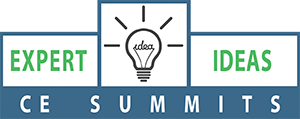Last updated: October 02 2018
Economic Consequences When the “Rich” Pay More Tax

A new report from the C.D. Howe Institute answers the common question: should the rich pay more tax? While recent tax rate changes brought in $1.2 Billion federally (far less than the $3 Billion anticipated) the data points to several negative impacts, with consequences to all taxpayers, when the rates applied to Canada’s top income earners go up.
A frequent consensus among Canadian taxpayers is that top earners should be paying more tax, and a report from PIPSC this summer indicated that the rich are unfairly skirting the tax system. However the C.D. Howe Institute Report opposes this common narrative.
In fact, it shows that the newly introduced tax rate increase for those earning over $200K (indexed to $205,842 in 2018), did not have the intended results.
Why? The reality is that when top earners, often business owners, face higher rates they change their behaviour to reduce their tax burden. For some, this could be tax avoidance. For others, this could mean moving their businesses to the  United States to take advantage of lower rates. Or, it could simply mean reducing their earnings by working less personally, or decreasing business activities.
United States to take advantage of lower rates. Or, it could simply mean reducing their earnings by working less personally, or decreasing business activities.
How does the impact on those in the highest-earning tax bracket affect the rest of Canadians? Moving businesses to the U.S. has economic consequences that affect Canada’s competitiveness. It reduces new job creation and employment opportunities, among other challenges we’ve outlined previously.
The numbers also show that Canada’s provincial revenues are being affected, too. While the tax changes brought in an estimated additional $1.2 Billion federally (far less than the $3 Billion anticipated), provincial treasuries lost $1.3 Billion in tax revenues.
Tax reform should be a priority. The C.D. Howe Report suggests that tax reform is necessary to ensure that combined federal and provincial taxes don’t exceed the 50 percent mark (currently an issue in seven Canadian provinces), and that doing so would likely improve Canada’s tax revenues in the future. The report’s other main recommendation comes as no surprise – that Canada’s competitiveness needs to be improved in the areas of taxation and attractiveness to global talent.
Knowledge Bureau Report readers also overwhelmingly agreed, when asked to comment on the need for comprehensive tax reforms in last month’s poll.
How can tax and financial advisors help? In addition to urging the government to introduce tax reform, you should ensure that reducing the tax burden of top income earners through investment opportunities and deductions is at the core of any financial planning strategy. In doing so, the positive effects will trickle down and benefit “average” Canadians, too.
Additional educational resources: Join us at DAC this November 11- 14th in Quebec City, where Dr. Jack Mintz and tax experts Dean Smith and Kim Moody will address Canada’s competitiveness challenge, especially in the area of corporate taxation, together with cross-border taxation issues affecting Canadians. See the agenda for more information and the incredible roster of leading industry experts and register by October 31.
The Fall CE Summits are another live opportunity to learn about tax issues and changes that impact Canadians. Expert instructors Larry Frostiak and Jenifer Bartman will join Knowledge Bureau President Evelyn Jacks to discuss year-end tax strategies. This event has particular relevance to those working with investors and small businesses, with a focus on year-end planning.
COPYRIGHT OWNED BY KNOWLEDGE BUREAU INC., 2018.
UNAUTHORIZED REPRODUCTION, IN WHOLE OR IN PART, IS PROHIBITED.





